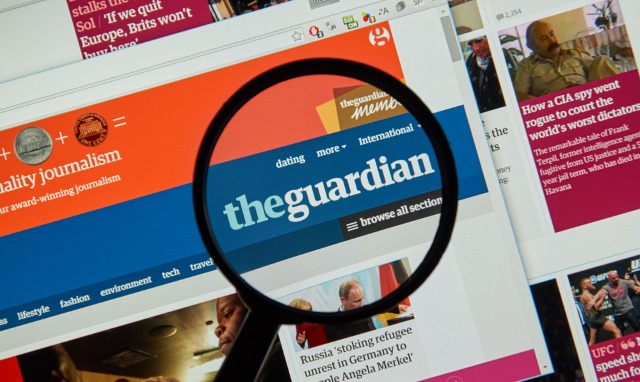“There is no such a thing in America as an independent press, unless it is out in country towns. You are all slaves. You know it, and I know it. There is not one of you who dares to express an honest opinion. If you expressed it, you would know beforehand that it would never appear in print. I am paid $150 for keeping honest opinions out of the paper I am connected with…The man who would be so foolish as to write honest opinions would be out on the street hunting for another job. The business of a New York journalist is to distort the truth, to lie outright, to pervert, to villify, to fawn at the feet of Mammon…You know this, and I know it; and what foolery to be toasting an “Independent Press”! We are the tools and vassals of rich men behind the scenes. We are jumping-jacks. They pull the string and we dance. Our time, our talents, our lives, our possibilities, are all the property of other men. We are intellectual prostitutes.”
Attributed to John Swinton on April 12, 1883, at the Twilight Club, New York City.
John Swinton reportedly said this in 1883, as a response to the hubristic toast “to the Independent Press” at a dinner for journalists.
In fact, his suggestion that local press were more independent than national outlets is also no longer a certainty, given the consolidated ownership of local newspapers in the hands of private equity firms who load them with debt, underfund their newsrooms, cut back on staff, and extract as much profit as possible before either selling the paper on, folding it, or declaring bankruptcy.
The well-documented concentration of television media in the hands of biased organisations like Sinclair Broadcasting have also reduced the number of independent or potentially independent voices in news.
On top of these ideologically driven or financially motivated back-room shenanigans that have gutted the media, there is another more basic reason for doubting the assertion that the press is or even can be independent:
Advertising.
The Guardian, a paper of record in the UK and a long-standing representative of righteous indignation on social ills and environmental destruction, recently announced spending cuts of about 20% to offset a drop in print advertising revenue. Conversely, there is very little on the record of The Guardian turning away advertisers like Shell, BP, or Coca-Cola, who don’t sit neatly alongside its supposed values. In the current climate of swingeing cuts and dropping revenues, would they be more or less likely to embrace an advertiser’s money and, along the way, modulate their editorial voice accordingly?

In 2017, The Guardian actually pulled their own advertising from Google’s platform because their ads were appearing alongside racist and extremist content on YouTube. In the aftermath, Johnny Hornby of The &Partnership, bemoaned “the reputational damage caused by the inadequate brand safety policies of major platforms like Google, YouTube and Facebook.” The response from Google was to say it would revise its policy and technology to try to prevent that sort of thing from happening again.
What is interesting about all this is that it is concerned solely with what people think, not what is actually happening. Brands, even respected media outlets like The Guardian, want to protect themselves from being associated with the content on the platform they are paying to advertise on. Effectively, if viewed with clear eyes, The Guardian was using its advertising budget to sponsor a platform that broadcasts racist and extremist video, but didn’t want anyone making that connection and therefore withdrew their advertising until Google could figure out a way to hide the connection from its website’s visitors and the general public.
As Molly Ivins wrote once, “you dance with them what brung ya”.
Newspapers require advertising to remain solvent, and the digital age has forced them to solicit subscriptions and advertising, make do with less, or reduce their operations. Papers like Metro and the Evening Standard in London are free to the public. Their model is to make enough money from advertising that they can just give away their papers. Are we honestly expected to believe that if advertisers requested that a story be dropped, or that a running theme in the paper’s coverage be diverted or changed, they would be refused?
Metro and the Evening Standard, co-incidentally, are both owned by the Daily Mail Group, chaired by Viscount Rothermere. BBC’s Newsnight programme reported in 2017 that before the 2016 referendum, then-Prime Minister David Cameron had asked Rothermere to fire Paul Dacre, the editor of the Daily Mail, because he was a Eurosceptic. Dacre kept his job, and then stepped down after the Leave vote. His job was then given to a noted Europhile, a classic case of shutting the barn doors after the horse has bolted. Although that story did eventually come to light, and the editor of the newspaper was not dismissed, the fact that a sitting Prime Minister even broached the topic of firing a newspaper editor because of his political views shows a controlling intent far beyond what one should expect in a country with a supposedly free press.

It is possible that David Cameron felt entitled to make that kind of approach because the UK government still uses DSMA-Notices (formerly D-Notices and DA-Notices), an official government request to the media not to publish information deemed too sensitive or dangerous to national security. Previous notices have been used to suppress or attempt to suppress coverage of the Wikileaks document release, the Snowden revelations about the United States’s PRISM program, and even Christopher Steele’s Trump dossier in 2017. Two were issued in March 2018 to try to suppress coverage of the connection between Sergei Skripal (the Salisbury poisoning victim) and British intelligence.
None of the above even begin to take into account the personal conflicts of interest that naturally arise when people move into and out of jobs in the media. A recent case is George Osborne, former Chancellor of the Exchequer, becoming the editor of London’s Evening Standard, and of course co-incidentally presiding over a noticeable shift in that paper’s coverage of the Conservative Party and its friends.
Whether for economic reasons, vested interests, pressure from advertisers, government interference or plain old bias and conflicts of interest, it remains clear that the idea of an “independent press” is exactly that – an idea. In the interdependent world of social, political and economic influence, nobody with access is truly independent. At best, they might be able to labour under the protection of a dedicated editorial team who ensure that most of what they want to share with the public emerges unscathed by the above considerations.
One upside of the social upheaval created by the internet is that it provides a platform for largely unmediated contact and feedback between people all over the world. The generations of media that have come before were all variations on the top-down, one-to-many idea of mass communication; in practice, this is really communication to the masses. The internet represents genuine mass communication, which is communication between the masses, without gatekeepers deciding who can say what.
We have the technological means now to speak to one another directly, and provided that this is done in the spirit of honesty and fellowship, serve a common purpose. One might call this new form of communication the ‘interdependent press’, rather than the commercially ‘dependent press’ of the past, or the vaunted ‘independent press’ so excoriated by John Swinton.
Just because we have the capacity does not mean that we will use it correctly, and in this lies the choice and effort through which we can become human beings worth the name. Instead of regurgitating accepted and unchallenged information from established voices, we have the opportunity now to use the internet for Good. As the saying goes, “use it or lose it”.






